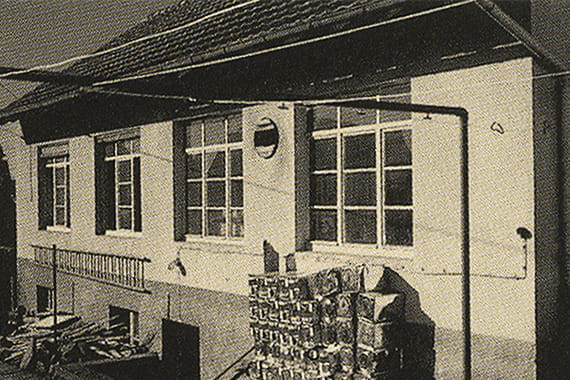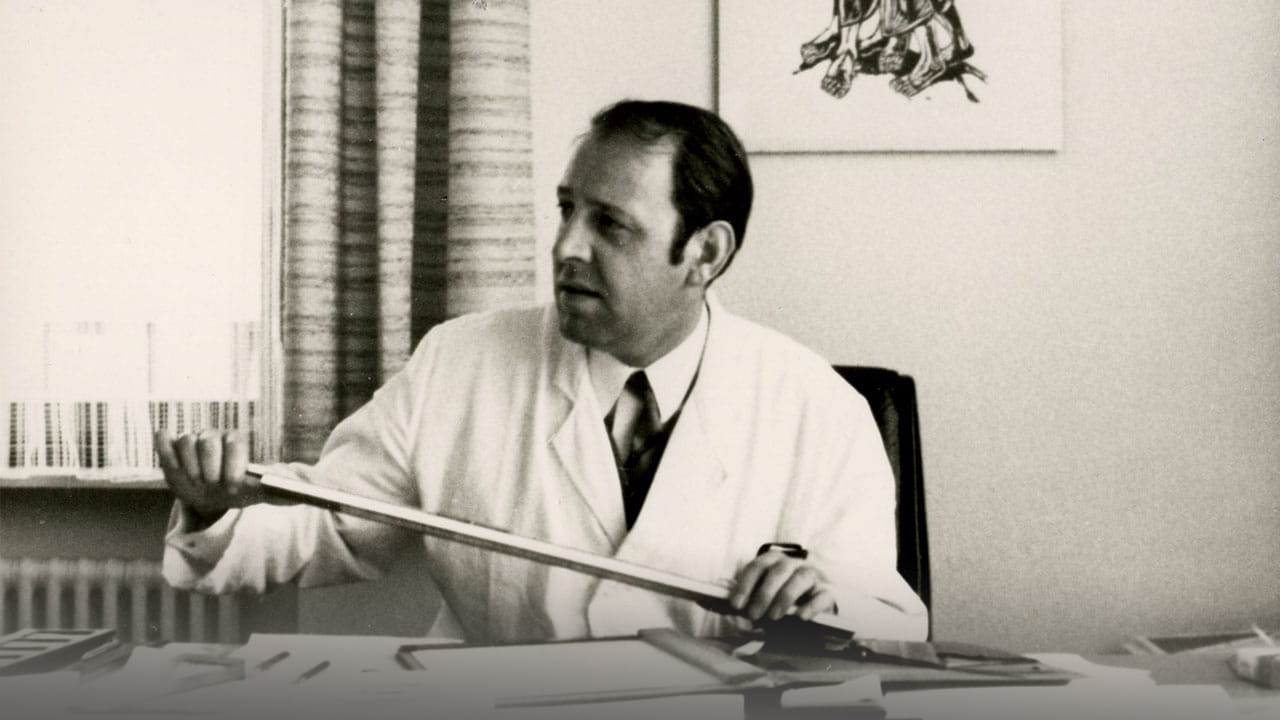High-quality plastics for over 50 years
Founded in 1966 by Wilfried Ensinger, his company now looks back to a successful history for over 50 years.
The milestones which have marked the development of the Ensinger Group tell the story of a family firm which has never been content to rest on its laurels. The continuous further development of products and production processes and the encouragement of employee potential have been essential aspects of our corporate mission since the very early days.
From tradition ...
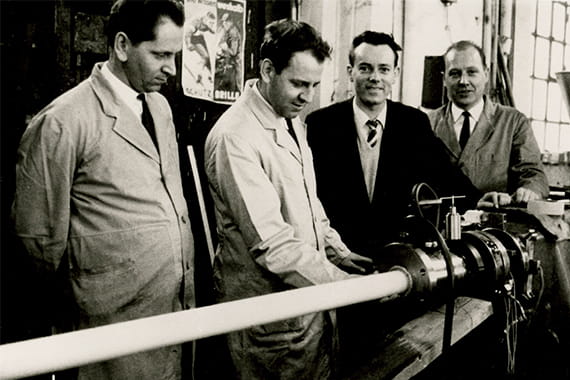
... but future focused.
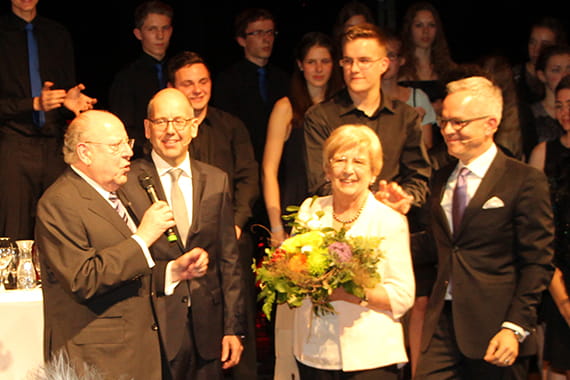
Development
2024: Björn Schneekloth joins Ensinger as Managing Director
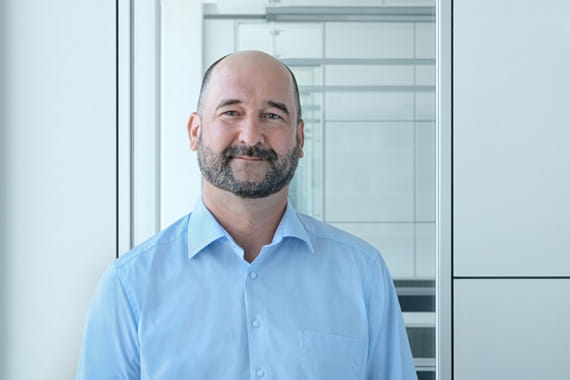
On 1 July, Björn Schneekloth joined Ensinger as a Managing Director. Together with Roland Reber and Ralph Pernizsak, he will be responsible for both Ensinger GmbH and the Ensinger Group.
With the expansion of the management team, the company is driving forward the transition from the current divisional structure to a functional and regionally oriented organisation.2023: Sadness at the death of Wilfried Ensinger
Wilfried Ensinger passed away on 23 May at the age of 87.
With the loss of its founder, the company says farewell to a passionate engineer, creative inventor and dedicated entrepreneur.
The University of Stuttgart conferred the title of honorary senator on the father of four. In 2005, Wilfried Ensinger was awarded Germany’s Federal Cross of Merit. The town of Rottenburg am Neckar made him an honorary citizen.
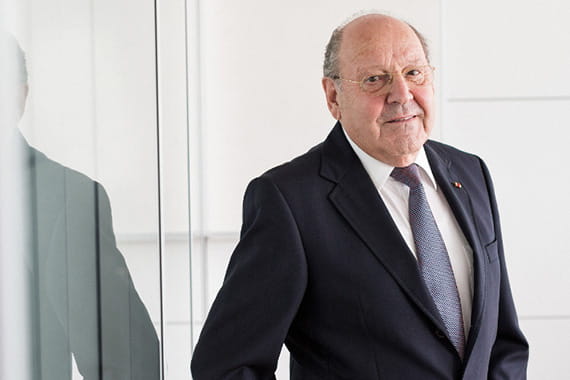
2022: Climate protection goals
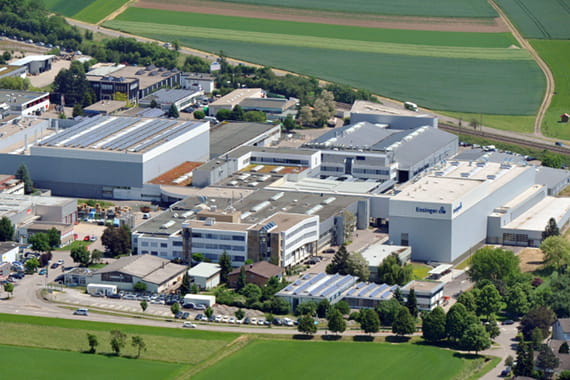
Ensinger is becoming part of the Science Based Targets initiative (SBTi) and commits to submitting its climate goals to the SBTi and to aligning these goals to comply with the target of 1.5 °C.
The SBTi is guided by recognised global standards which are in line with the scientific consensus on limiting global warming in the context of the Paris Agreement.2021: Changes to the Management Board
Klaus Ensinger is giving up his operational management role and therefore his seat on the Ensinger GmbH Management Board. He will, however, continue to provide support to strategic projects and be a member of supervisory bodies.
The Management Board now consists of three people: Roland Reber has been Managing Director at Ensinger since 2002. Oliver Frey joined the management of the family-owned company in July 2019. Ralph Pernizsak was appointed Managing Director in April 2020.
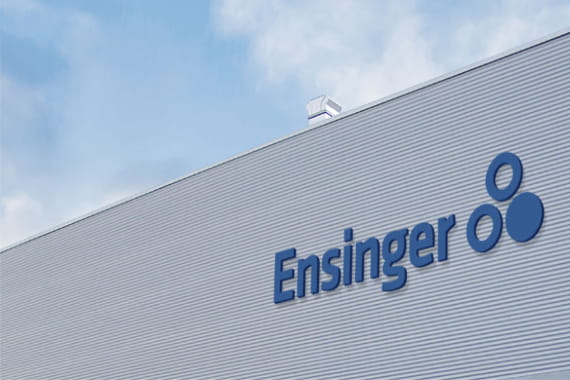
2019: Sale of Thermix business
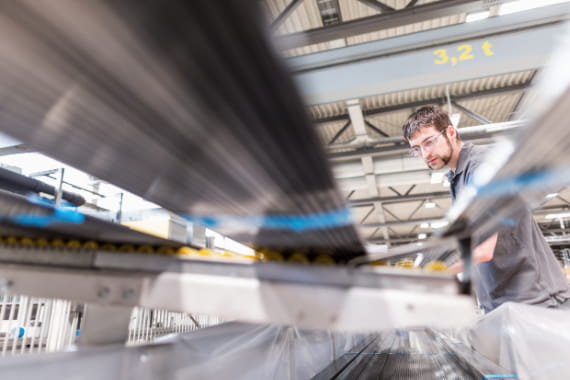
In order to focus more on its core areas of business, Ensinger is selling its Thermix insulating glass spacer business to the Italian Fenzi Group. In addition to the production site in Cham, the sales office in Ravensburg is also affected by the sale of the product line.
Following negotiations between the Executive Board and the Works Council, a programme for reconciling interests and social plan were concluded for both sites. At the Cham plant, the majority of the affected employees can transfer to position that have become vacant in other areas through staff turnover.
2019: Hybrid materials expand the technology spectrum
Ensinger strengthens its position in a growth market with the acquisition of the medical technology specialist Moll Engineering. The Lübeck-based enterprise manufactures target devices and other surgical instruments from carbon fibre-reinforced high-performance plastics, stainless steel and titanium. The products are made by the manufacturing company Wenglon in Dobra, Poland, which has also been taken over.
In addition to finished parts, Ensinger also offers semi-finished products made of carbon fibre composite material. The subsidiary company Ensinger Composites Switzerland, in Otelfingen near Zurich, develops new technologies for the processing of thermoplastic fibre composites. This site became part of the Group as early as 2017 through an acquisition.
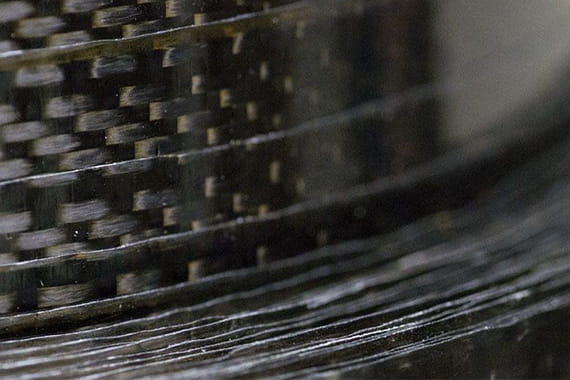
2017: Martha Ensinger died
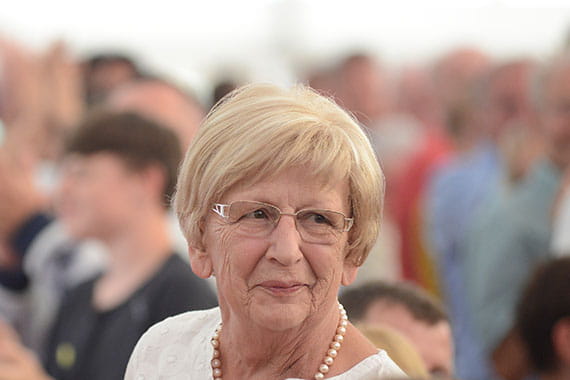
Martha Ensinger, beloved wife of company founder Wilfried Ensinger, passed away on June 27 after a serious illness. The Requiem in Rottenburg Cathedral and the subsequent committal were attended by large numbers of the public.
The name of the Wilfried Ensinger Foundation has been changed to Wilfried and Martha Ensinger Foundation in order to honour Martha Ensinger’s dedication to the development of this charitable institution.
2016: Ensinger turns 50
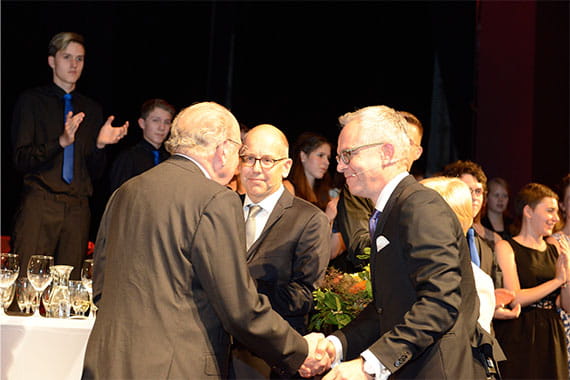
2009: New production halls for the compounds and injection moulding divisions
The growing significance of raw material finishing (compounding) has necessitated the expansion of both production and storage facilities in Nufringen. The recently founded Ensinger Compounds division moves into a new building permitting greater production flow efficiency and a significant increase in volume. A technical highlight is a clean room for the production of medical technology materials.
In Rottenburg-Ergenzingen, a new injection moulding plant is constructed. The Nufringen site no longer offers sufficient space for expansion of this division. The new factory is designed to permit closely meshed interaction between the different production areas, with work flow optimization playing a key role in the planning process. Organization and quality management focus on adherence to the strict standards of the supply industry.
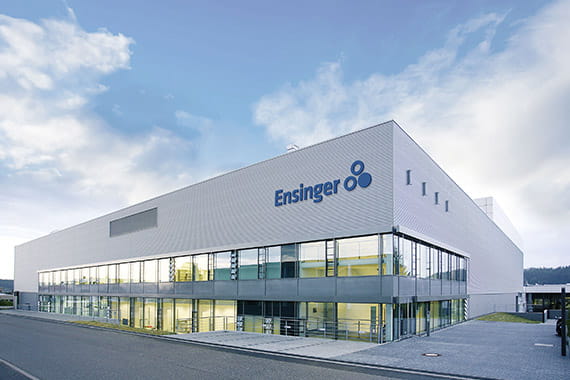
2008: Profile factory takes on a new dimension
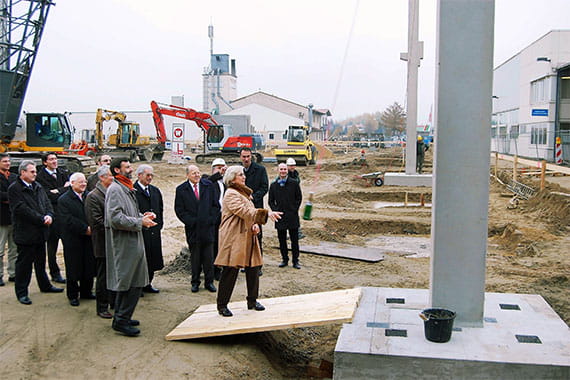
2007: Launch of part machining in Shanghai
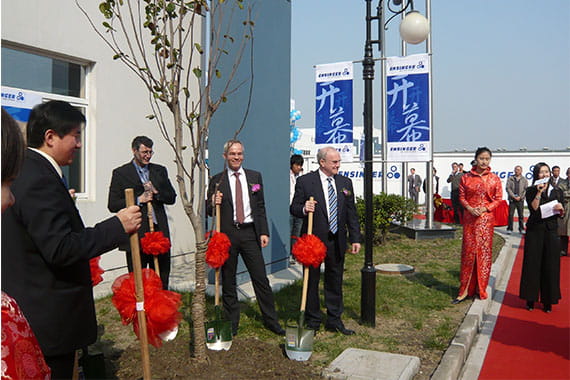
2005: Wilfried Ensinger distinguished by the Federal Cross of Merit
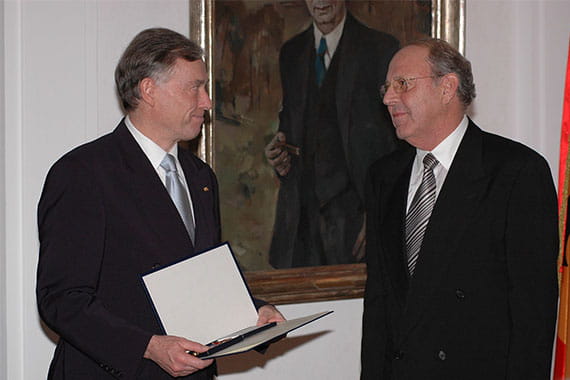
2004: Honorary Senatorship conferred by University of Stuttgart
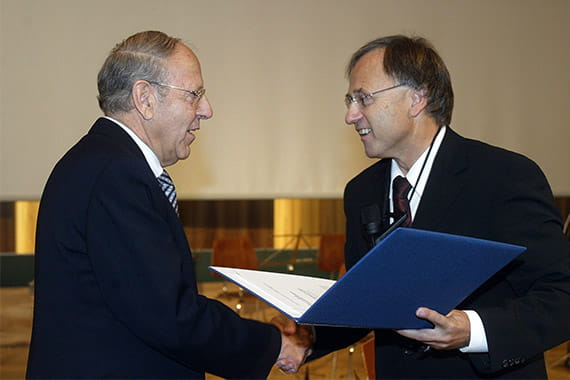
New Generation
2002: Change of company management
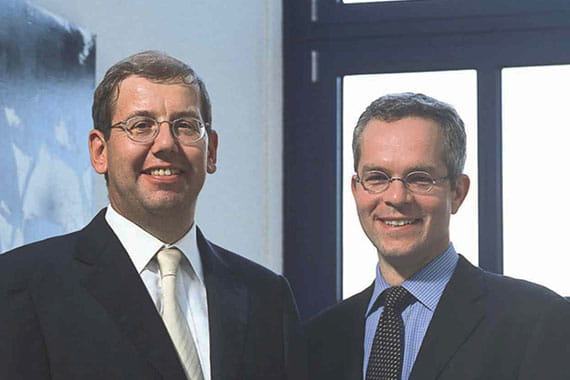
2001: Little Non-conformist
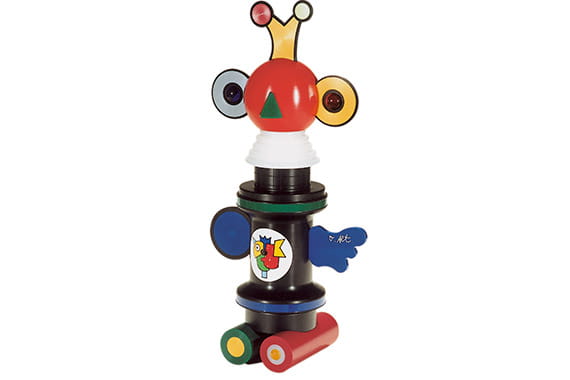
1999: Ensinger do Brasil moves into its own modern production facility
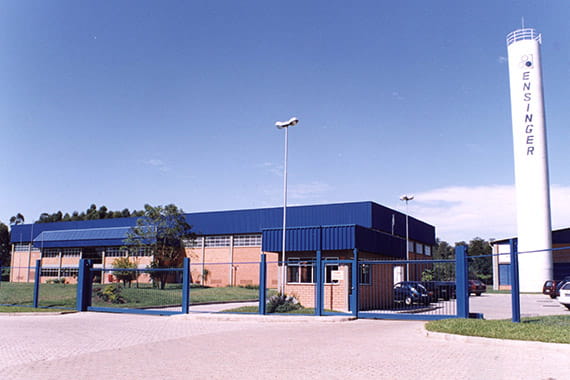
1998: Establishment of the Wilfried Ensinger Foundation
1998 the Wilfried Ensinger Foundation (today: Wilfried and Martha Ensinger Foundation) was established by the company founder. This foundation supports cultural projects in his home town of Rottenburg, social projects in Eastern Europe, Africa, Asia, Central and South America, as well as providing funding for budding young scientists in Germany.
Klaus Ensinger and Michael Koch take over the reins of management from Wilfried Ensinger, who continues to provide essential impetus to the strategic direction of the company as Chairman of the Supervisory Board.
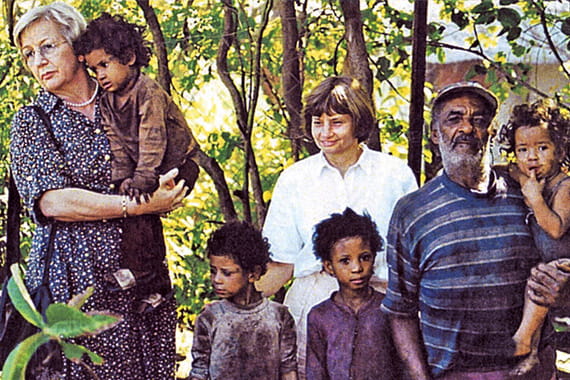
Internationalisation
1994: Manufacture of polyimide semi-finished and finished parts
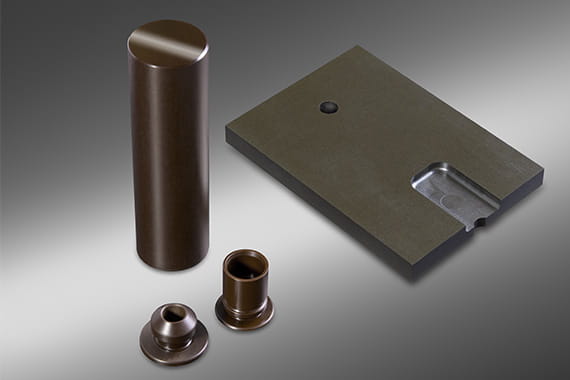
1993: Cast Nylon
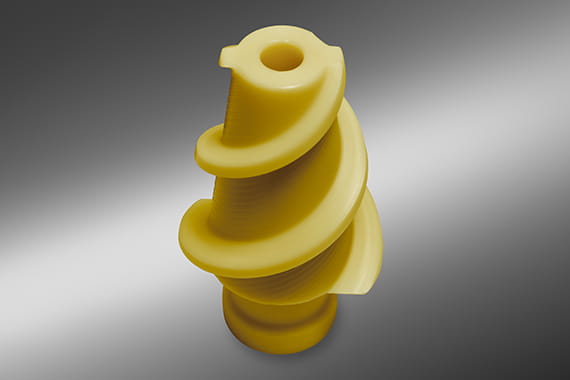
1989: New building in Nufringen and expansion abroad
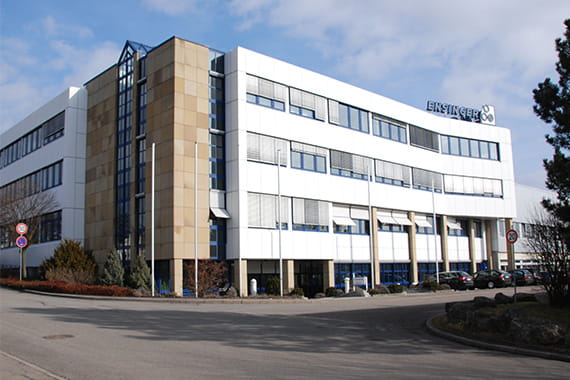
As a result of the search for a suitable sales support centre in Northern Germany, Ensinger purchases a site in Anröchte. A new administrative headquarters is opened in Nufringen. Following the success of Ensinger Ltd., the Sales Division pushes for additional independent locations abroad: 1989 sees the establishment of Ensinger France S.A.R.L., followed a year later by Ensinger Italia. Over the next decade, a series of other branches is founded in Europe, South America and Asia.
The decentral organization of the company group has created the ethos of a “corporation run by entrepreneurs”, permitting regional differences in customer and market demands to be met with new products and structures.
1987: Foundation of Ensinger Ltd.
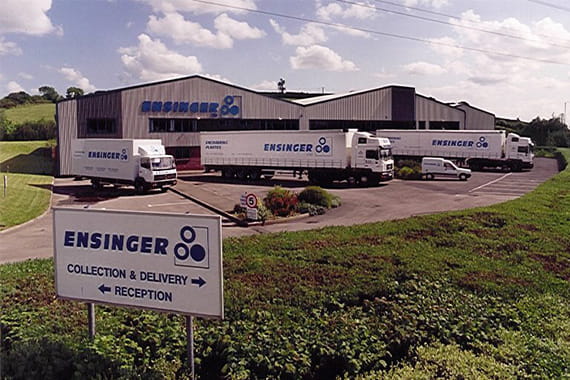
Ensinger Limited is founded in record time by Wilfried Ensinger and John Speirs in Llantrisant, South Wales. The rapid pace of growth continues in the UK market both as a result of organic expansion and also company acquisitions. In 1994, the company acquires specialist machine shop TRIG Engineering based in Bridgwater.
The company headquarters is now located in Tonyrefail. Today, Europe’s biggest Ensinger subsidiary operates sites in the country’s major economic strongholds with a workforce totaling almost 300.
1986: The first foreign subsidiary: Ensinger Inc.
The first moves towards internationalisation of the company were made back at the start of the eighties, but have ground to a halt. Initially, exports were initiated through agencies in the various countries, but Wilfried Ensinger quickly comes to realise that this type of co-operative arrangement fails to live up to the needs of either the product or the customers. Joint ventures in Switzerland and the USA fail to take off.
It is only by setting up decentralised production in countries with demand that Ensinger is able to achieve a sustainable solution to the problem of exchange rate risk. This realisation moves Wilfried Ensinger to launch another attempt to find a suitable location in the USA in the mid-eighties. By taking the bold step of launching an independent company, Ensinger Inc., with its own newly appointed workforce in Washington/Pennsylvania, the foundation stone is laid for what has now become the Group’s biggest subsidiary.
Over the following years, Ensinger Inc. systematically expands its market position. Today, the workforce at the producing locations in New Jersey, Texas, Connecticut, Delaware and the US Headquarters close to the industrial centre of Pittsburgh totals several hundred.
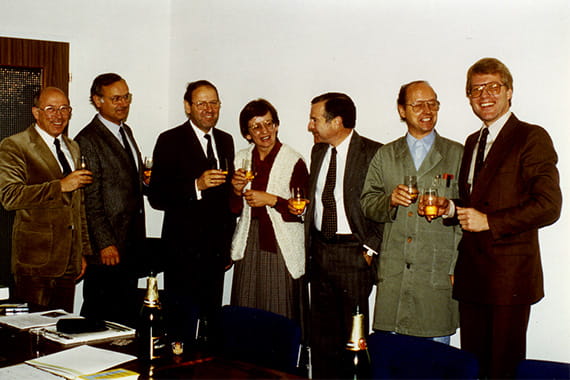
Diversification
1985: Launch of injection moulding production
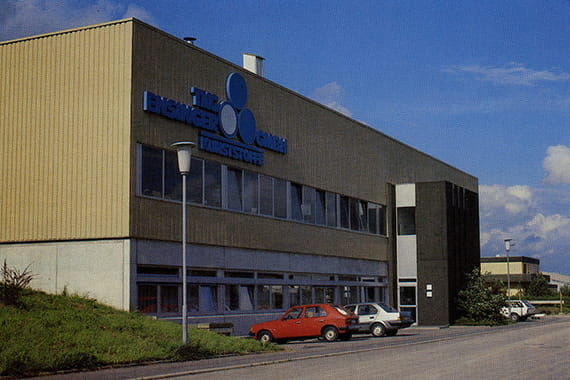
1980: Branch plant in Cham
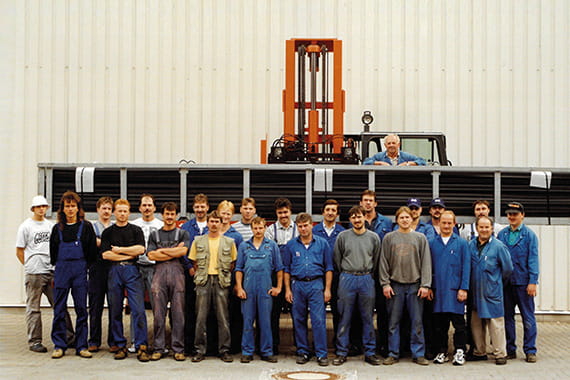
1977: Production of insulation profiles begins
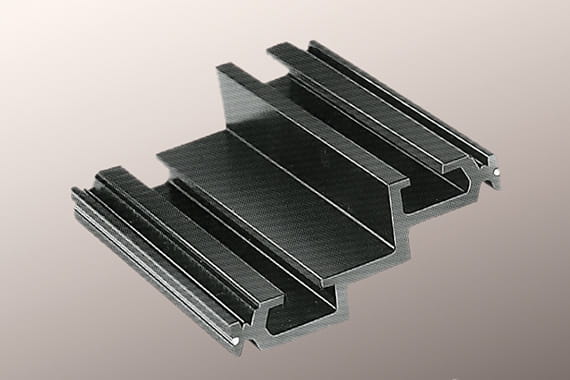
For some time, the manufacturers of aluminium windows and facades have been seeking solutions for thermal insulation of their metal profiles which will permit compliance with the new, more stringent guidelines on energy saving. In 1974 Ensinger starts the development of an extrusion technology for processing of glass fibre-filled polyamide 6.6 precision profiles. The authorisation requirements and standards are elaborated in parallel, in close cooperation with BASF, Wicona, the Federal Institute for Materials Research and Testing (BAM) and the window institute ift Rosenheim. In December 1977, Ensinger delivers the first series-produced thermal insulating profiles. The second extrusion tool is put into operation in July 1978.
Initially manufactured in Nufringen and produced in Cham since 1988, the thermal profiles have grown to become a key pillar of the company’s business portfolio. Since 2001, the product line has been marketed under the brand name insulbar®.
1971: Machining semi-finished products
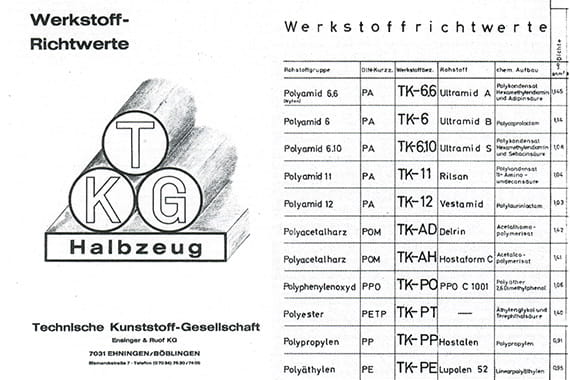
Foundation
1970: Move to Nufringen
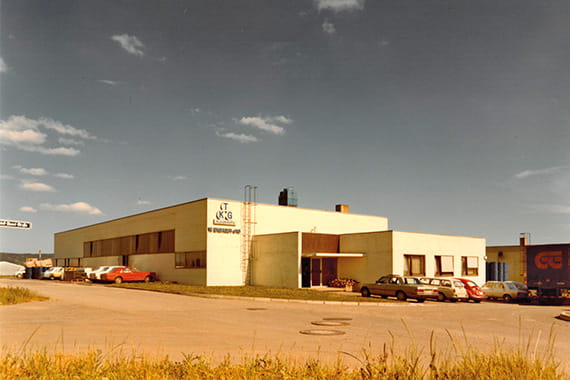
1966: Ensinger oHG is founded in Ehningen
During the 1960s production of high temperature resistant polymers began in Europe and North America. The processing methods used to produce these new thermoplastics were far from perfected. For instance, there was no way of manufacturing many of the high-quality glass and carbon-filled materials we use today.
After gaining technical and management experiences in industry over several years, Wilfried Ensinger is intrigued by the possibilities surrounding the newly emerging technical plastics and determines to set up a production process for semi-finished products and machine elements of high quality. In 1966, the engineer launches his own company in Ehningen (near Boeblingen). Using a spare garage, he develops new extrusion methods using equipment he designed and constructed himself. From the very beginning, Ensinger works closely with raw material manufacturers and users of plastics.
